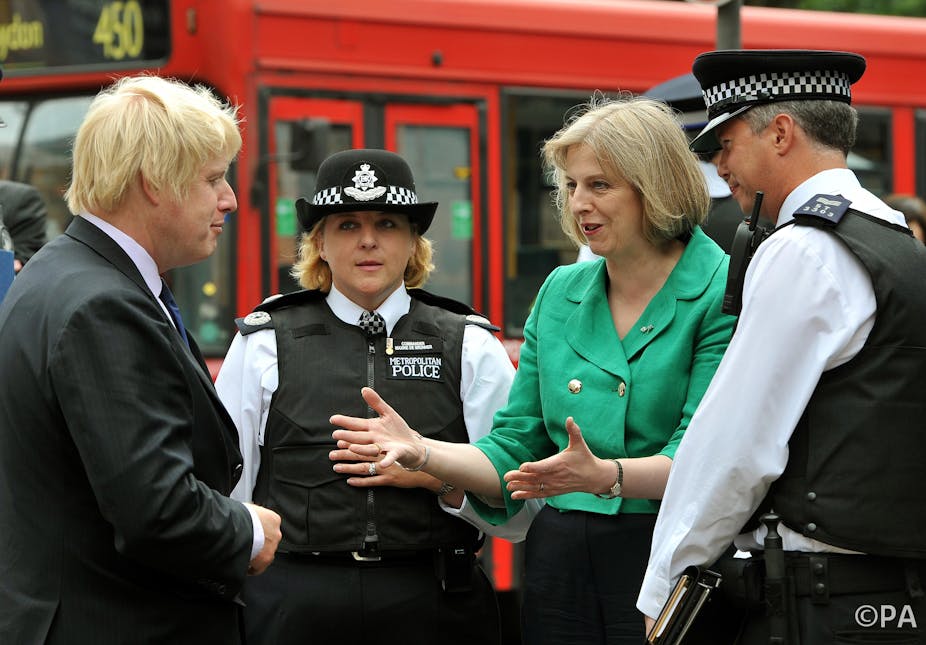The murder of US journalist James Foley by an Islamic State militant who appears to be British has shocked the world and the UK. This was the most graphic example to date of a UK citizen’s involvement in the fighting taking place in Syria, Iraq and elsewhere.
Foley’s killing has triggered renewed calls for extra counter-terrorist powers to combat the threat posed by IS; a threat that will, according to the Home Secretary Theresa May, continue for decades. But these laws are yet another affront on basic human rights in the UK. May and now Boris Johnson are using the threat of IS as an excuse to abandon basic British values.
May has suggested that anti-social behaviour orders could be introduced to ban people from joining certain groups. Details of her plan are yet to be released, but these restrictions could look something like the now defunct control orders that were once used to limit the rights of terrorism suspects.
Control orders, introduced by the previous Labour government, curtailed an individual’s liberty indefinitely. They could include curfews and restrictions on the use of phones and the internet. Sometimes people under control orders were forced to move house if they had undesirable connections in the area.
These restrictions could be imposed without ordinary criminal justice safeguards such as the need to prove beyond all reasonable doubt that an individual had committed an offence. They were eventually replaced by Temporary Prevention and Investigation Measures (TPIM) in 2011 as part of the coalition government’s commitment to rebalance the relationship between security and human rights.
Notably, the power of forced relocation was removed and a TPIM could only be imposed for a maximum of two years. The burden of proof was also raised from “reasonable suspicion” to “reasonable belief”. Notwithstanding this, TPIMs were branded as merely “control orders light” and were often seen as merely replicating the worst of the control order regime.
Simultaneously, the current government sought to assuage fears of being soft on terrorism by publishing the Enhanced TPIMs Bill. Although this bill was never passed, it was published to illustrate that the government has emergency laws in reserve, in the event that they are required.
These reserves could now be wheeled out as a knee-jerk response to the fear spreading about UK jihadis. It is possible that the apparent threat posed by IS to the UK is the “emergency” that will result in the ushering in of Enhanced TPIMs.
Too soft on terror?
The suggestion of ASBOs for terrorists has come under attack but not because they would amount to the latest in the line of liberty-eroding measures. They have been dismissed because such measures are hardly likely to leave IS fighters “quaking in their boots” or deter UK citizens from joining militant groups.
Enter into this debate London mayor Boris Johnson and his “minor” call for presuming that any UK citizen returning from Syria or Iraq is a terrorist unless they can prove otherwise.
Johnson can call his proposal as modest as he likes but what he is suggesting is the complete uprooting of one of the most fundamental keystones in British criminal justice. Any individual brought before British courts should be innocent until proven guilty, whether they are shoplifters or terrorists.
His words may be receiving a negative response now but we need to monitor this situation closely. The abandonment of the “beyond all reasonable doubt” when control orders were first introduced in 2005 illustrates how easily it is for us as a society to become comfortable with the gradual erosion of human rights.
Each atrocity results in renewed clamour for more laws, more security, without any real contemplation of whether such measures are actually meritorious or necessary. In suggesting tighter controls on terrorism suspects, the government is implying that current laws are ineffective. But the latest figures show that there are a grand total of zero individuals subject to TPIMs at present. That doesn’t exactly suggest that TPIMs are necessary to hold back the tide of potential terrorists.
Endless cycle
As we work out how to respond to IS, we need to think about whether the UK really needs new laws. The ink is barely even dry on the DRIP Act a controversial piece of counter-terrorist legislation enacted in July that gives security agencies greater power to intercept data.
This is never-ending cycle of lawmaking and both sides of the political divide are guilty of perpetuating it. Even when measures such as control orders are withdrawn, it is not long before there are calls for them to be reintroduced. Reactionary law-making may appease backbenchers and tabloid newspapers but in reality it is unclear if they actually make us safer.
Nor do these approaches attempt to understand why some British Muslims feel the need to travel to Iraq or Syria or fight with IS or similar groups. They instead represent terrorism or military conflicts as something individuals can simply be deterred from.
Human rights are under threat once again and politicians continue to use fear to push through draconian measures. When politicians talk of British values, they are also including, whether they like it or not, the longstanding commitment to the rule of law and criminal justice safeguards. It is these values that need defending as much as apparent terrorists need stopping.

